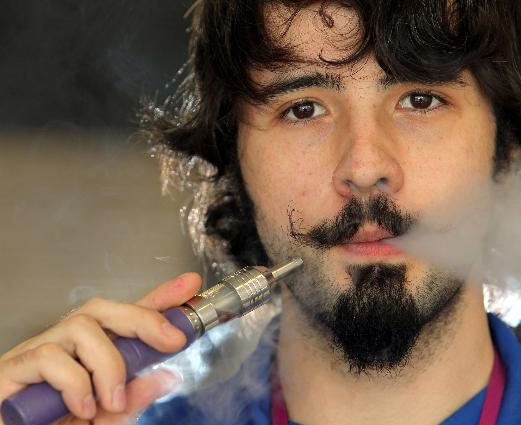Concordia campus goes fully tobacco-free
By Grace Lyden | Forum News Service
MOORHEAD – Following the lead of college campuses around the country, Concordia College at Moorhead is now fully tobacco-free.
As of Aug. 18, the college prohibits the use, sale or distribution of cigarettes, cigars, pipes, hookahs, electronic cigarettes and any other smoking products, as well as smokeless tobacco products, such as chew and snus, on campus grounds.
“We felt that what we wanted to do was be as comprehensive in this as possible,” said Sue Oatey, Concordia’s vice president of student affairs.
According to a survey done by Concordia’s Student Government Association in 2013, 88 percent of Concordia students did not use tobacco products on campus and 70 percent supported a tobacco-free policy.
Those statistics make it surprising that the move didn’t happen sooner, as it did at other colleges in the Fargo-Moorhead area.
Minnesota State University Moorhead went tobacco-free on Jan. 1, 2008. Two years later, North Dakota State University’s smoking ban went into effect March 1, 2010.
And in the past five years, the number of smoke-free campuses nationwide has soared.
Just 365 campuses were smoke-free in October 2009, compared to 1,372 campuses in July 2014, according to the American Nonsmokers’ Rights Foundation, a group that tracks those numbers.
Alyssa Coop, president of Concordia’s student government and a senior at the college, said her understanding was that a smoking ban had been often discussed but also often tabled.
“It’s kind of come and gone,” she said. “Every once in a while, the administration will make headway on it, but it seems to take a while to get through the red tape.”
That’s why the SGA wasn’t confident when they started working with Oatey and others on this proposal two years ago.
“We really didn’t have high hopes for it,” Coop said. “We didn’t know if it was going to be time for it or not.”
Now that it is in place, though, Concordia’s ban is one of the nation’s most comprehensive because it prohibits smoking products, smokeless products and also e-cigarettes.
E-cig debate
E-cigarettes have been a point of debate on numerous college campuses.
They’re marketed as a better option for public use due to reduced secondhand smoke effects, but the U.S. Food and Drug Administration and the World Health Organization have questioned those claims and called for stronger regulation.
Just 176 of this year’s 1,372 smoke-free campuses also prohibit e-cigarettes, according to the ANRF data, and three of those are now in Fargo-Moorhead.
MSUM released a statement March 13 that e-cigarettes would be added to its tobacco policy, citing the lack of FDA regulation and also a 2014 U.S. Surgeon General report that said e-cigarettes constitute tobacco use.
NDSU also recently added e-cigarettes to its policy to be in compliance with state law, said Janna Stoskopf, NDSU dean of student life.
North Dakota is one of two states that specifically prohibit using e-cigarettes in 100 percent smoke-free venues, according to the ANRF July report. The other is New Jersey.
NDSU differs slightly from Concordia and MSUM because while the campus is smoke-free, smokeless tobacco is allowed.
Stoskopf said students who spearheaded the ban were intentional about that choice.
“They thought they would have the best possible success based on the notion of secondhand smoke and the impact of that on others,” she said.
Slightly more than two-thirds of smoke-free college campuses – 938 of the 1,372 – are also tobacco-free, according to the ANRF.
There have not been efforts to change that aspect of NDSU policy, Stoskopf said.
http://www.inforum.com/content/concordia-campus-goes-fully-tobacco-free



